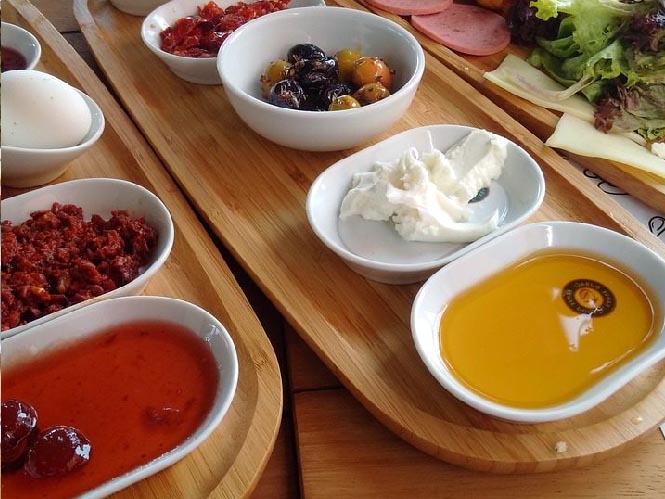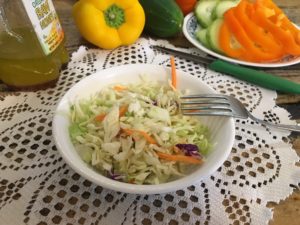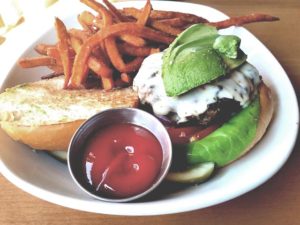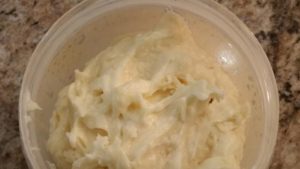Easy Ketchup, Mayonnaise, Coleslaw and BBQ Sauce Recipes

EASY, QUICK, SIMPLE, HEALTHY
HOMEMADE CONDIMENT RECIPES
Gluten-free, Dairy-Free, Onion-Free And More!
These homemade condiments contain real
ingredients with additional *health benefits.
No added chemicals, processed oils, flavorings,
spices, or high fructose corn syrup to worry about.
You can season them to your taste preference:
Ketchup, Egg-Free Mayonnaise, Barbeque Sauce,
Tartar Sauce, Red Seafood Cocktail Sauce,
Russian dressing, Thousand Island dressing,
Coleslaw dressing, Cashew Sour Cream.
To Be Low-Carb, Egg-Free, Soy-Dairy-Gluten-and
Chemical-Free…Or tomato or onion-free, must I give
up mayonnaise, Coleslaw dressing, tartar sauce,
Cocktail sauce, barbecue sauce, and ketchup?
Have you read the ingredients on the labels lately?
I found only one or two advertised brands left that
may still be safe to eat. (French’s Ketchup) was one.
See * Health Benefits below,
Kudos to ‘Mellow Yellow Mustard’ (if you like yellow
Mustard), You’ll love this. Look at their ingredients:
Vinegar, water, Mustard seed, salt Turmeric, Paprika.
$1 in Dollar Tree for a big 20 ounce plastic bottle, and it’s
even certified kosher!
Make your own quick sauerkraut
substitute by simmering shredded cabbage until
your desired tenderness, in a couple of tablespoons of
water with 1-2 teaspoons of vinegar. You can adjust the
quantities to suit your taste.
I learned to make my own condiments at home. You
can spare yourself and your family the awful health
risks in today’s commercially processed condiments.
Check out these easy-to-do, homemade recipes for
ketchup, mayonnaise, and even (gluten-free) barbecue
sauce plus free recipes from “Naturally Savvy.”

DAIRY-FREE COLESLAW DRESSING
The easiest coleslaw dressing you’ll ever make!
It’s as simple as oil & vinegar & Honey
Ingredients:
1/3 cup of oil
1-2 tsp. any vinegar
2 tsp. honey
whirl it together until blended.
Adjust ingredients to your taste preference.

VEGAN HOMEMADE KETCHUP WITH A
TOMATO-FREE/ ONION-FREE OPTION
Yield 22 servings
Making your own ketchup allows you
to control what goes in it.
Total Time: 25 mins. 22 Servings

How To Make Gluten-Free Homemade Ketchup
INGREDIENTS
6 oz. *can of tomato paste
OR make paste from 3 whole simmered tomatoes,
OR 1-1/2 cups cranberries or peeled boiled beets.
1/4 cup water
1 tsp. coconut sugar (adjust to taste)
2 tbs. maple syrup or honey
1/4 to 1/2 cup white vinegar
3/4 tsp salt
Optional:
1/8 tsp garlic powder
1/4 tsp onion powder
* Kosher or mediterranean markets sell tomato paste
in little plastic containers instead of cans.
Cooking directions
(Soften whole tomatoes or alternatives in a saucepan
until it becomes liquid. Strain to remove skins and seeds).
In a medium saucepan, over medium heat, add
strained liquid, water, syrup, and sugar. Whisk until
it comes to a boil. Reduce heat to low and simmer,
stirring often, until desired thickness.
Remove from heat and let cool, Add seasoning. Purée
in a food processor. Store in a covered container or jar.
Remember that this ketchup doesn’t contain
chemical preservatives so it won’t keep as long. It
will keep for about two weeks in the fridge.
Don’t let it sit unrefrigerated more than an hour.

++++++++++++++++++++++++
4 Recipes for Egg-Free Mayonnaise
Vegan Mayonnaise Recipe #1
Quick to blend, this Creamy Sugar-Free,
healthier and tastier mayonnaise. Guilt-free, egg-free,
dairy-free nut free Creamy Mayonnaise.
It’s non-GMO, Paleo, low-fat, with no stabilizers,
no canola oil, trans-fats, or sugar.
Prep time: 10 minutes
Total time: 10 minutes
Yields: 1 small jar
Ingredients
3/4 cup soy milk (Or other plant based)
1-1/2 tbs. fresh lemon juice
1 tsp Dijon mustard
3/4 cup olive oil
Pinch of salt
Pinch of pepper
Cooking directions
Combine milk, lemon juice and mustard
in a blender or with a stick or emersion blender
for about 30 seconds.
While blending, slowly add in the oil until
emulsified and it thickens. Add the salt and
pepper and blend again.
Taste and adjust seasoning as needed.
++++++++++++++++
Vegan Mayonnaise Recipe #2
Prep time: 10 minutes
Total time: 10 minutes
Ingredients
1 cup Avocado or Olive Oil
1/2 cup soy milk (Or other plant based)
1 tsp fresh lemon juice
Pinch of salt, to taste
Pinch of ground mustard to taste
(or 1/2 a tsp or so of prepared mustard)
Cooking directions
Combine milk and lemon juice in a
blender or with a wand blender for about
30 seconds. While blending, slowly add in
the oil until emulsified and the mixture thickens.
Add the salt and mustard and blend. Taste and
adjust seasoning as needed.
Oil, so you can substitute this with
+++++++++++++++++++++++++
Cashews make a wonderfully smooth base for mayo.
And cashews are low in fat compared to other nuts.
I suggest blending the lemon with the pulp when possible.
It’s easy – just cut away the peel with a serrated knife,
slice, seed with the tip of a knife, and pop it in the blender.
Or you can juice the lemon or use lemon juice concentrate.
I didn’t soak the cashews, and it still came out perfectly smooth
in my little personal food processor. Makes about 1 1/2
cups vegan mayonnaise.

Cashew Mayonnaise Recipe…#3
Egg-free, Dairy-Free, Nut-Free, Sugar-Free
Ingredients
1 cup cashews, soaked 1-4 hours, (soaking is optional)
1 large lemon, peeled, sliced, and seeded (about 84 grams)
1/4 heaping teaspoon unprocessed salt
2 tablespoons apple cider vinegar
1/2 teaspoon ground mustard
1/4 to 1/2 cup filtered water as needed to blend
1 clove garlic, chopped (optional)
Instructions
In a small blender or immersion blender with cup,
blend all ingredients until smooth and creamy.
You’ll want to spread it on everything!
VERSION #4
Egg-Free Dairy-Free Mayonnaise Recipe
Ingredients
3 tablespoons lemon juice
2 tablespoons apple cider vinegar
1-1/2 teaspoons ground mustard
Sweeten to taste with about 1-2 tablespoons
raw honey, or your favorite sweetener.
1 1/4 teaspoons pink salt
1/2 cup cold pressed extra virgin olive oil
1/2 cup coconut oil at room temperature
Instructions
In a food processor, mix lemon juice, vinegar, mustard,
sweetener, and salt.
While mixing, add the olive oil slowly. Open the food processor
and add the solid coconut oil. Mix until smooth and creamy.
Process as briefly as possible to keep the mixture from heating up.
Then it will be thick enough to use immediately.
Pour into a bowl or jar. Use immediately or store
in the refrigerator up to one week.
+++++++++++++
How to Make a wonderful cashew sauce
In a saucepan over low-medium heat, mix cashew butter with
some soy sauce, a pinch of cayenne pepper, garlic, ginger and
water to make a wonderful sauce for fish, vegetables, tofu or rice.
+++++++++++++
For Tahini sauce
Couple of tablespoons of tahini
2 tablespoons lemon juice
1/2 cup water
Himalayan salt
Cayenne or chili powder
For Cashew Sour Cream
1/3 cup raw cashews, soaked for 1 to 2 hours
1 teaspoon turmeric
Juice from 1/2 lemon
Himalayan salt
1/2 cup water
Blend these in a food processor until smooth.
+++++++++++++
Quick Barbecue Sauce
1/2 cup date syrup or molasses
1 tbs. oil (olive or avocado)
1 tbs. organic apple cider vinegar
1 tsp. minced garlic
2 tbs. orange juice
Gluten-Free Barbecue Sauce
Ingredients
3 cups organic tomato juice
½ cup finely diced shallots
½ cup raw honey or molasses
¼ cup organic apple cider vinegar
1¼ tsp. organic apple cider vinegar
1 tsp. salt
1 tsp. dried thyme
¼ tsp. cayenne pepper
2 cloves garlic, minced
1 Tbsp. ginger, minced
Flesh of 1 naval orange, diced and
without seeds
Procedure
Place all ingredients in a medium-sized pot.
Simmer with the lid off on medium heat for 45
minutes, or until desired
consistency. This can be puréed in a blender to
smooth out the texture if desired.
Recipe From Naturally Savvy Date Published: June 17, 2016
Simple Homemade Condiment Recipes
Get your FREE COOKBOOK and Receive
Dr. Mercola’s Free Natural Health Newsletter!
+++++++++++++
Tartar Sauce For Fish
1 cup homemade mayonnaise
1 tbs. chopped sweet or garlic pickles
1 tsp dried or fresh chopped dill
Mix all ingredients. Store in airtight
container in Fridge.
+++++++++++++
Red Cocktail Sauce
1/2 cup Red Horseradish with beets
1/2 cup homemade ketchup
Mix all ingredients. Store in airtight
container in Fridge.
+++++++++++++
Difference between:
Russian dressing and Thousand Island Dressing
Basically Russian dressing is a mixture of mayonnaise
and ketchup.
Thousand Island is the same base ingredients with
pickles and sometimes chives or eggs.
+++++++++++++
* Health Benefits
These Homemade
Condiment Recipes
Are Healthy and All-Natural
These homemade condiments contain real ingredients with
additional health benefits for you and your loved ones. Using
organic tomato paste and juice sets you up for the positive
benefits tomatoes have to offer. Apart from having no fat and
cholesterol, tomatoes have high amounts of infection-fighting
vitamin C. Plus, you can get your fix of two powerful carotenoid
antioxidants:
Lycopene: helps defend your cells and skin from UV damage
and skin cancer, lessen oxidative stress and risk of osteoporosis,
and keep bone density Zeaxanthin: filters UV rays and helps
prevent macular degeneration,
Organic, pasture-raised eggs are a must if you’re making
homemade mayonnaise. Most eggs nowadays come from
chickens raised in conventional animal feeding operations
(CAFOs), where they’re fed an unnatural diet and are exposed
to dangerous bacteria. Organic, pasture raised eggs are better
because compared to conventional eggs, they have higher
amounts of:
Vitamins A and E
Omega-3 fatty acids
Beta-carotene
Other nutrients found in eggs, especially in the yolk,
include:
Choline: helps with brain development, regulates the health
of cell membranes, and has anti-inflammatory properties
Lutein and zeaxanthin: as mentioned earlier, zeaxanthin helps
keep your eyes healthy.
Meanwhile, lutein aids in protecting your central vision and assists
in blue light absorption. When they work in tandem, they’re able to soak
up excess photon energy and fight free radicals that can harm lipid
membranes Coconut oil is another vital ingredient because unlike
vegetable oils with long-chain fatty acids, the medium-chain fatty acids
in this oil provide therapeutic benefits to poeople with brain disorders and
epilepsy, help prevent the onset of Alzheimer’s disease, and pave the way
for weight loss. Meanwhile, another component in coconut oil, lauric acid,
turns into a monoglyceride called monolaurin that can get rid of bacteria,
fungi and viruses.
Raw organic honey adds a mild sweetness to your barbecue sauce.
Apart from having antifungal and antioxidant properties, organic
honey has antibacterial capabilities that allow it to eradicate more than
250 bacteria strains.
Honey is also a known energy-booster and immune system
builder, especially for people who have allergies.
If you like your sauce spicy, turn up the heat and the
health benefits with cayenne pepper.
Capsaicin, a compound found in spicy peppers, has
antioxidant, anti-inflammatory and cancer cell-fighting abilities.
This compound also relieves pain by lowering your body’s
supply of substance P, a chemical that sends pain signals to your
brain, and plays a role in weight loss, since it can help lower calorie
intake, shrink fat tissue, reduce fat levels and inhibit fat build-up.
Cashew nuts grow in the seeds that hang from cashew apples.
They contain vitamins and minerals that support healthy blood
and immune system function.
Cashews have a buttery, sweet, and salty taste, an unmistakable shape,
and they are an excellent source of vitamins and minerals. They grow on
cashew nut trees, which are native to subtropical climates.
Raw, unsalted cashews are often used in vegan recipes as well as in Indian
cooking. Many of us eat cashews after they have been roasted and salted,
which turns them into a delicious snack.
What Are the Health Benefits of Cashews?
Although cashews are one of the lowest-fiber nuts, they are packed with
vitamins, minerals and antioxidants.
These include vitamins E, K, and B6, along with minerals like copper,
phosphorus, zinc, magnesium, iron, and selenium, all of which are important
for maintaining good bodily function.
https://draxe.com/cashews-nutrition/
1. Fight Heart Disease
Frequent cashew consumption can help lower your risk for many of the biggest
risks associated with heart disease, including high cholesterol, high blood pressure
and obesity. Cashews are believed to have beneficial effects on oxidative stress
levels, inflammation and vascular/arterial activity that promotes a healthy heart.
Cashews can help lower LDL cholesterol (considered the dangerous kind) and
improve HDL cholesterol (the “good” kind). They contain special phytosterol
compounds, which play an important structural role in cell membranes where they
stabilize cells and interfere with cholesterol absorption. This is responsible for their
cholesterol-lowering abilities and the reason cashews may be able to help prevent
the formation of plaque within artery walls. Cashews are also associated with lowered
triglyceride levels and reduced levels of inflammation, all of which help protect you
from heart disease, heart attacks or stroke.
2. Help Prevent Gallstones
Some research has found that eating nuts weekly, including cashews, can help lower
the risk for having gallstones. Gallstones are associated with healthy cholesterol levels;
they’re caused by hardened cholesterol, a result of too much cholesterol being present
within the bile that circulates through the digestive tract.
Cashews have a high oxalate content. When eaten in large quantities,
this can be unsafe lead to kidney stones, and other chronic health problems.
https://draxe.com/ cashews-nutrition/
Normally, your liver doesn’t secrete a high enough amount of cholesterol to harden
and form stones, but when liver health is poor, cholesterol can essentially act like glue,
hardening and binding together with other substances like calcium inside the gallbladder.
3. Can Help with Weight Loss or Maintenance
Nuts have a high total fat content, — cashews are made of approximately 46 percent
fat —but they’re also very nutrient-dense and provide a lot of important minerals and
fatty acids that support weight loss.
Cashews can help you feel fuller after a meal, which is beneficial for curbing food
cravings, overeating and unhealthy snacking. Fats in general make food more satisfying
and increase nutrient absorption of fat-soluble vitamins like vitamin A and vitamin D.
Cashews are also a good source of plant-based protein (somewhere around 25 percent
of the nut is made up of amino acids), partially in the form of beneficial amino acid
L-arginine, which is a precursor of nitric oxide known to help improve vascular reactivity
and circulation. Improved blood flow helps draw toxins out from the digestive system and
can add to an improved metabolism, higher energy and better digestive health.
4. Help Maintain Bone Health
Cashews nutrition benefits include bone health improvement due to the presence of
calcium, magnesium and potassium, together with a low sodium intake. These are
associated with protection against bone demineralization. Cashews’ bone-building
benefits also come from their supply of vitamin K.
Cashews provide over 12 percent of your daily vitamin K needs in just a ¼ cup serving —
working as a great source to prevent vitamin K deficiency. Vitamin K works with other
essential minerals like calcium to support bone mineralization and maintain bone
mineral density, which can help protect you from bone fractures and osteoporosis.
5. May Help Prevent Colon, Prostate and Liver Cancers
Regularly eating nuts, including cashews, is associated with a lower risk for certain
common cancers, especially cancers that occur in the digestive tract, including liver
and colon cancers.
Nuts are good sources of antioxidant vitamins (for example, tocopherols and certain
phenolic compounds, which are mostly stored in the shells of cashews and nuts) needed
to protect the body from high levels of free radical damage that causes oxidative stress,
potentially contributing to DNA damage, cell mutation and cancerous
tumor formation.
6. Support Healthy Brain Function
The brain is made up of mostly fat and relies on a steady supply of healthy fatty acids
within the diet. Nuts are one of the natural plant foods richest in fat and support cognitive
function, healthy aging and mood regulation.
Several dietary components of cashews can help support cognitive abilities and multiple
brain processes by regulating neurotransmitter pathways, synaptic transmission and
membrane fluidity, particularly the healthy fats in cashews but also trace minerals like
zinc, iron and copper. (6) Dietary deficiency of healthy MUFA and PUFA fatty acids has
even been associated with increased risk of several mental disorders such as ADHD,
anxiety or depression, dyslexia and dementia.
7. Lower the Risk for Diabetes Cashews are a great source of MUFA fats, which slow the
rate at which blood is released. into the bloodstream. The anti-diabetic properties of
cashews nutrition is partially due to the active ingredients called hydroethanolic extract
in the form of anacardic acid, which stimulates glucose transport and control. (7) Hydro-
ethanolic extract of cashew tree (Anacardium occidentale) nut and its principal compound,
anacardic acid, stimulate glucose uptake
Cashews also help lower levels of inflammation, and studies show that a diet higher in
nuts results in lower circulation of inflammatory biomarkers that can contribute to
insulin resistance and diabetes formation. Additionally, cashew nutrition benefits
include the ability to prevent or treat other complications of diabetes including arterial
hypertension, obesity and cardiovascular risk.
8. Help Prevent Migraine Headaches
Cashews help support healthy brain function and improve blood circulation while
lowering blood pressure. Nuts also provide plant-based phytosterols, which are
beneficial for reducing headache duration and occurrence.
Additionally, cashews fight rapid changes in blood sugar and hypoglycemia, another
well-recognized trigger for migraines.
9. Help Maintain Healthy Skin
beautiful skin
Cashews nutrition supports healthy skin due to the presence of healthy essential fatty acids.
Healthy sources of fat are needed to keep skin hydrated and free from irritation, flaking and
premature aging.
Cashews are also a high source of copper, which helps with the production of the skin and
hair pigment called melanin, as well as the formation of collagen, which supports skin’s
elasticity and defenses against aging.
History of Cashews
Cashews were first cultivated in Brazil, where Portuguese inhabitants discovered
them and brought them back to parts of India sometime around 1560 and 1565. From
India, cashews spread throughout Southeast Asia and eventually made their way to
America and Africa.
The cashew tree is now widely grown in tropical regions around the world, especially
in parts of India, Nigeria, Vietnam, the Ivory Coast and Indonesia. The modern-day
name cashew derives from the Portuguese word for the fruit of the cashew tree, caju,
which translates in Portuguese to “nut that produces itself.”
Cashews are considered drupes that grows at the end of the cashew apple fruit. The
drupe develops first on the cashew apple tree and then expands to become the cashew
apple. The apple itself has a sharp taste and delicate skin, therefore it doesn’t transport
well and isn’t commonly eaten. In some parts of the world, however, like Brazil and regions
in Africa, cashew apples are actually considered healing delicacies and are used for their
natural medicinal qualities like fighting bacteria.
How to Buy and Store Cashews
When it comes to which types of cashews to buy, look for raw cashews if possible, with
plain “dry roasted” cashews being your second best option. Blanching cashews and other
nuts, especially when their shells are removed or cracked open, can destroy most of their
antioxidants more so than roasting usually does. All cashews sold to customers have their
outer shells removed because they’re considered “toxic” and likely to hold bacteria.
You definitely want to avoid cashews or other nuts that are coated in vegetable oils (usually
rancid and hydrogenated oils) or sugar and other artificial additives. This is usually the case
when you buy pre-made trail mixes, so check the label carefully that no extra sugar, preservatives,
hydrogenated vegetable oil, chemicals or preservatives have been added to your cashews or
cashew butter.
Cashews are considered more stable than many other types of nuts because they have a high
content of oleic acid, but it’s still a good idea to store them in a tightly sealed container and
away from heat in order to prolong their freshness. Many people even like to refrigerate or
freeze their nuts, nut butters and nut flours to retain the most nutrients possible.
Here are some other types of products made from cashews that you might also want to seek out:
Cashew “butter” — a great alternative to peanut butter, this is made by soaking and blending
cashews. Salt should be the only other ingredient added. Cashew flour — made by drying and
grinding cashews, this can be used in similar ways to almond meal. Try combining it with coconut
flour or other gluten-free flours to make muffins, pancakes or other treats. Cashew milk — this
is a good alternative to almond milk, coconut milk or dairy milk if you avoid lactose and
conventional (pasteurized) dairy. It’s a bit creamier than almond milk and is free of sugar and
lactose as long as you buy an unsweetened version.
Types of cashews products – Dr. Axe






You must be logged in to post a comment.